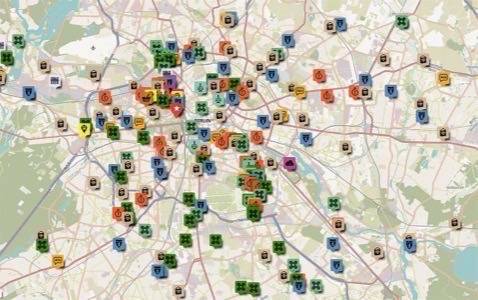
Recently it’s become rare to turn on the television or click on a news website and not see articles or news stories about refugees and asylum seekers. In past months, people fleeing the violence of Syria have captured the public attention, as people cross country borders with few possessions. It’s a plight which brings out the compassion of many, all keen to somehow make things better, particularly in response to the inefficiency of swift, effective government action.
The tech industry is keen and able to lend a hand. It’s not financial aid, like the fundraising efforts of Kickstarter, Airbnb and Google, that makes the sector shine, but the efforts of individuals and groups showcasing what they do best: creating platforms and structures that let those in not-for-profit (NFP) and humanitarian aid help as many people as possible.
Developers Create Mobile Mapping
Mobile mapping is a crucial element in the journey of refugees to safety. Having Google maps, GPS or other mapping devices can mean contact with a rescue boat. It can mean a refugee is able to forgo the use of smugglers and take the journey alone.
Upon arrival, mapping apps like Arriving in Berlin can offer ways to access local services, like free counseling, doctors who speak Farsi and libraries with Internet access.
Humanitarian organization Global Initiative has been working with UK volunteer developers from Techfugees to map smuggling networks and create a public database of routes. The intention is to identify future choke points or emerging smuggling markets, and to reduce the information advantage that smugglers hold over migrants.
What3words, winner of the Innovation Grand Prix at the Cannes Lions festival of Creativity, was one of the most interesting mapping platforms to come out lately.
For people in displaced locations like refugee camps and informal settlements, the system enables them to exercise basic rights—like reporting crime, getting medical assistance and receiving deliveries. As a free plug-in universal addressing system, What3words maps the world as a 3mx3m global grid, with each of the 57 trillion 3mx3m squares being pre-allocated a fixed and unique three-word address. A geocoder turns geographic coordinates into these three-word addresses and vice versa.
Developers Creating Platforms And Connecting People
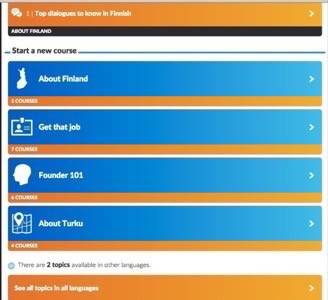
There are many different challenges for refugees, including language and cultural differences compounding obstacles in accessing help, not to mention overall integration.
Many developers are intent on creating apps and websites to aid the daily lives of refugees and those who work with them. While its focus was originally on African countries, Finnish startup Funzi recognized the transferable nature of its program. So it created a series of learning packages to assist refugees in Finland, which includes resources on language and communication skills, everyday life and legal rights.
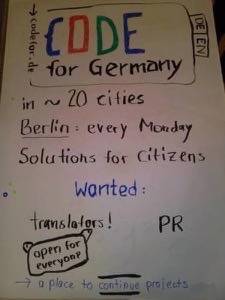
The startup scene in Berlin has partnered with locals and expats to develop a range of volunteer projects.
These include an open-source Refugee Phrasebook in over 28 languages covering topics across legal, medical fields. It’s been widely distributed and praised by border staff, refugees, volunteers and medical workers. There’s also a Volunteer Planner for those wishing to help refugees and refugee shelters. The planner currently has over 29,000 volunteers registered, and will roll out to other countries in 2016.
Education And Meaningful Employment
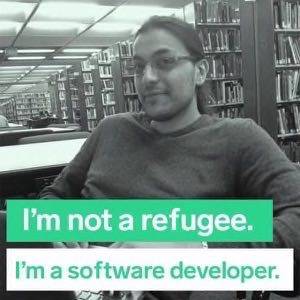
What makes the tech sector distinct from other sectors is that skills are transferable across continents, unlike many professional industries. In response to the reality of employment challenges that displaced people can face, creatives from different parts of the world joined forces to launch I Am Not a Refugee, a site designed to help them find work appropriate to their skills.
Finnish startups created Startup Refugees, a network in conjunction with government bodies to provide professional internships for asylum seekers who would otherwise be legally unable to work. Over 250 companies participate in the program.
In Berlin, volunteers are creating Refugee on Rails, a coding school for Berlin based refugees. It offers classes for complete beginners, as well as those who have interrupted education or have been unable to work for safety reasons.
Classes will start in January and the school has been overwhelmed with offers for classroom space, computers, internships and work experience. Many of the refugees enrolled currently live in tents, and coworking spaces offer free memberships to participants, so they can have a warm and comfortable space to work. One of the crucial roles of the school is to assist participants with networking and social support, from attending meetups to participating in hackathons.
Innovations In Jordan And Beyond: The World’s First Refugee Camp, Fab Lab
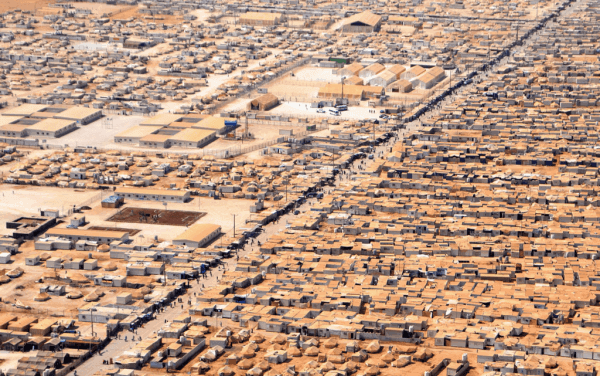
As the vast majority of refugees from Syria are living in the Middle East—namely Turkey, Lebanon, Jordan, Iraq and Egypt—I’d be remiss to neglect some of the interesting things happening there.
Refugee Open Ware is a humanitarian organization comprised of building Fab Labs in conflict-affected areas. They provide training to displaced persons and host communities, while building solutions to the problems facing victims of conflict. It currently has a Fab Lab in Amman, Jordan which trains locals in advanced manufacturing and creates 3D printed prosthetics. It’s in the process of building a Fab Lab in Za’atari Refugee Camp, which lies on the Jordanian border with Syria and hosts 83,000 Syrian refugees.
Refunite is a nonprofit tech organization whose mission is to reconnect refugee families across the globe, empowering refugees and displaced people to take the search for missing loved ones into their own hands—whether through a mobile phone, a computer or one of our free help lines. It uses unstructured supplementary service data to allow people to search for others registered on the service using technology similar to text messaging, in locations where full Internet access might be unavailable or unreliable.
Room For Improvement
The sheer number of hackathons, projects, meetings, Facebook pages, etc., is jaw dropping. What seems to be most crucial is to offer a centralized space to collate all the initiatives internationally and allow them to collaborate.
In researching this article, for example, I have seen at least six different housing platforms (mostly modeled on AirBnB), not to mention at least five different platforms for providing local, mobile based resources to refugees.
What needs to happen is for the tech sector to start communicating within its international networks. Berlin’s refugee hackathon is attempting to respond to this by creating an SQL database in GitHub called Meta Brain. The question is, will anyone else use it?
Sustaining the motivation energy of volunteers and unpaid workers after the media attention of Syrian refugees and the disruption of the festive season is challenging. But what the tech scene seems intent on creating is sustainable projects. If it can avoid reinventing the wheel, it just might stand a chance of succeeding.





















